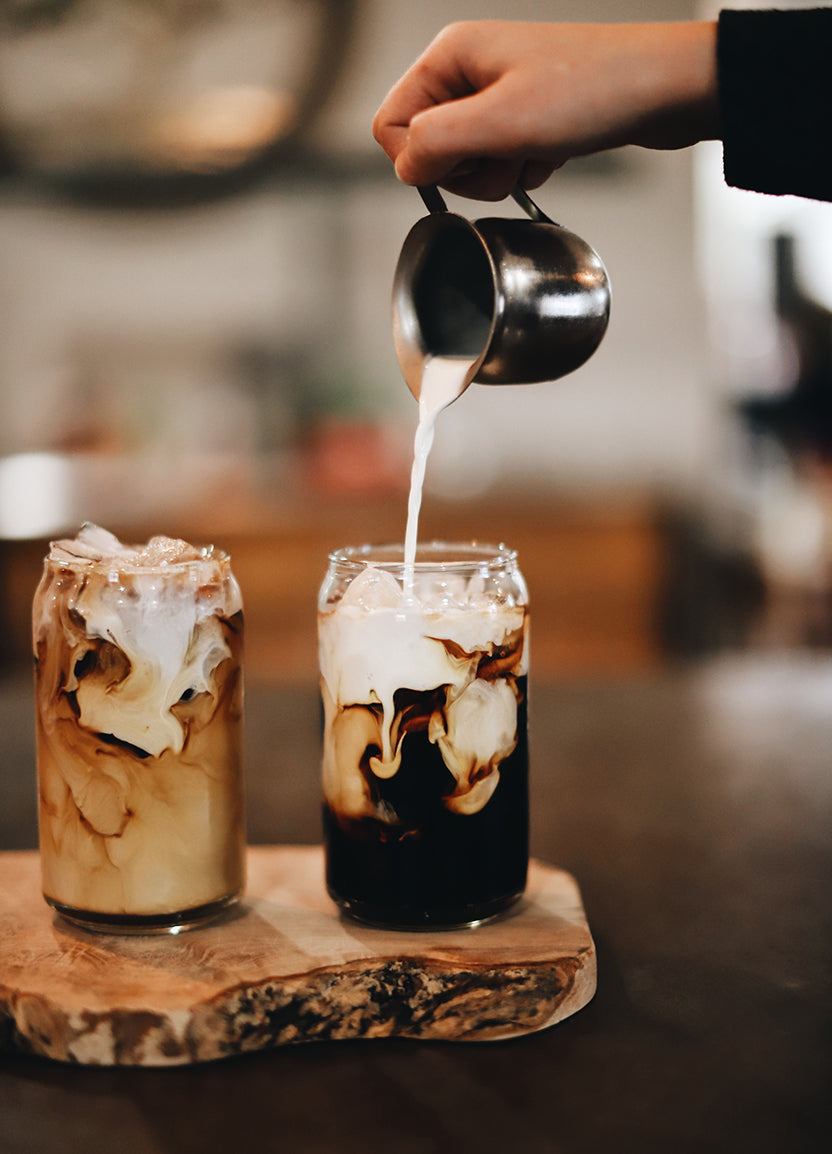Picture this: early in the morning, you take the first sip of freshly brewed premium coffee expecting something rich, flavorful and eye-opening.
Instead, you are awakened with a jolt by the bitter, astringent taste coming from the liquid inside your mug. This is not a pleasant way to begin the day.
But it is fixable.
Keep reading to find out the six main reasons why your coffee tastes bitter—and six low-maintenance ways to correct it.
1. The Beans Are Over-Extracted
Take pity on your poor coffee beans. There is only so much deliciousness they can deliver.
If you demand too much of them by brewing them for longer than necessary, the grounds become over-extracted. This leaves you with a bitter cup of coffee and a bitter attitude towards the coffee beans that failed to meet your expectations.
Rectify the situation and do right by your beans. Be aware of how much brewing time they can withstand before over-extraction occurs.
In general, drip coffee should brew for around five minutes. French press coffee requires three to four minutes of brew time. Espresso has the briefest brew time of all, clocking a mere 30 seconds of contact with hot water.
Additional brewing will force your coffee grounds to collapse under the strain. Brew with restraint and any lingering bitterness will vanish.
2. The Grind Is Too Fine
While an extra-fine grind works magic in an espresso machine, it can sound the death knell when used in a French press or Chemex.
As coffee grounds become finer, their surface area expands. The expanded surface area means the grounds get more exposure to water in a shorter amount of time. Brew fine grounds for too long and you go back to square one: over-extraction.
Even the most diligent of baristas have been guilty of blitzing the beans a touch too much at some point. To avoid this and bitter-tasting results, check your coffeemaker’s instruction guide or do a quick internet search to find out what size grind is recommended.
If you stock whole coffee beans at home, grind them slowly and in intervals using a burr grinder for even sizing.
At Three Coffee, we also offer pre-ground coffee for your convenience. Simply choose your favourite speciality coffee and the grind type that suits your coffeemaker before checkout.
3. The Water-To-Grounds Ratio Is Off
Coffee, like life, is about finding balance. An equilibrium must be maintained to reap the benefits of both.
Keep this manifesto in mind before adding an extra scoop of grounds to the coffeemaker, or you upset the water-to-grounds ratio at your peril.
Doubling the grounds (but not the water) gives you twice the drawbacks, not twice the flavour. It makes the coffee taste bitter, and you will have wasted more grounds than usual.
Casual coffee drinkers can measure out one or two tablespoons of grounds to every six ounces of water.
Coffee enthusiasts will prefer more precision. A ratio of 1:16, or one gram of coffee grounds to every 16 grams of water is standard, though a 1:17 ratio is also acceptable.
A small kitchen scale keeps levels in check and prevents bitterness before brewing even begins.
4. The Water Is Too Hot
Overall, boiling has done a lot for the world. It renders previously undrinkable water potable again, it can sterilize equipment, unclog drains or cook pasta to al dente perfection.
It does not, however, benefit your coffee.
Boiling water to over 100 degrees Celsius (212 degrees Fahrenheit) poured over coffee grounds will cook it to death and give your coffee a bitter and unpleasant taste.
To brew coffee properly, wait for 30 to 45 seconds after the water is taken off a boil before pouring it over the grounds.
The ideal water temperature ranges between 91 degrees Celsius (196 degrees Fahrenheit) for French press coffee and 96 degrees Celsius (205 degrees Fahrenheit) for pour-over coffee.
A small digital thermometer makes an inexpensive way to test the temperature of your water, but true coffee lovers should consider investing in an electric kettle with built-in temperature controls.
5. The Roast Is Too Dark for Your Palate
At Three Coffee, we roast our coffee beans to enhance each batch’s unique terroir.
This can vary from a light roast that brings out the floral, fruity notes in our green colour coffees to a dark roast that showcases the velvety richness of an espresso blend in our brown colour range.
Be aware that the darker the roast, the more likely it is that the coffee has a bitter note in its flavour profile. Some people find this pleasing, but it might not suit your palate.
All is not lost if you bought beans that have been roasted too darkly for your taste. There’s no need to bin them.
The next time, sprinkle a pinch of salt on top of the grounds before brewing. This trick helps to mask the bitter notes your tongue perceives and mellows out the dark roast flavour.
6. The Coffee Machine Is Dirty
Cow’s milk. Soy milk. Almond milk. Oat milk. Coconut milk. Any of these add-ins would be better than a splash of musty germs in your cup of joe.
If you already tried our other suggestions and your coffee still tastes bitter, your coffeemaker might need a thorough cleaning.
Like any other kitchen device, coffeemakers become dirty over time. Drip coffeemakers and espresso machines require particular attention since their water reservoirs tend to stay damp, which fosters bacterial growth.
Run a pre-formulated descaling solution, or make your own using equal parts vinegar and water, through the machine two to three times to restore your favourite coffeemaker to proper working order.
Along with a trusty bottle brush and a little elbow grease, the vinegar and water solution removes build-up and stains from a French press, Chemex and other pour-over devices, too.
Skip the Café
Now there is no need to run to the coffee shop every time you crave a cortado.
You’re ready to brew Three Specialty Coffee Roasters beans at home without bitterness, just like our pros do.






Leave a comment